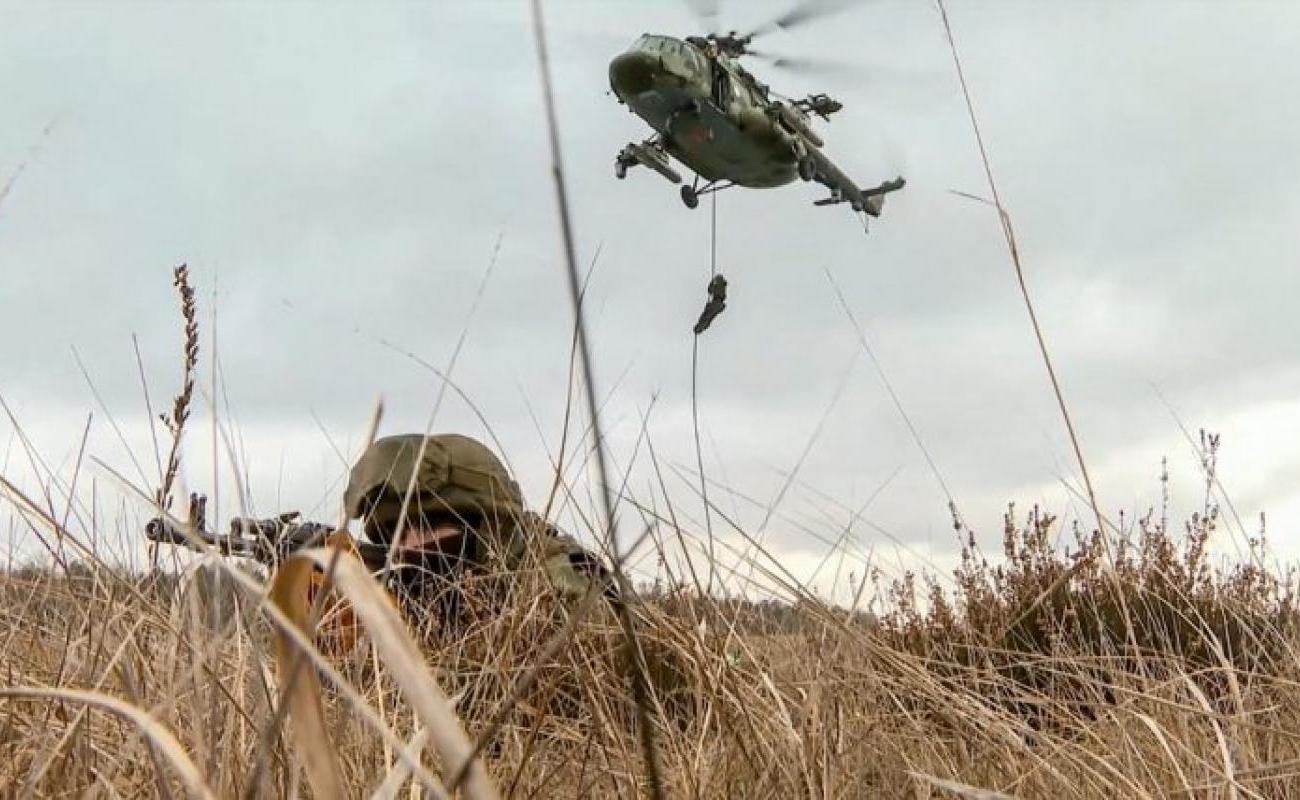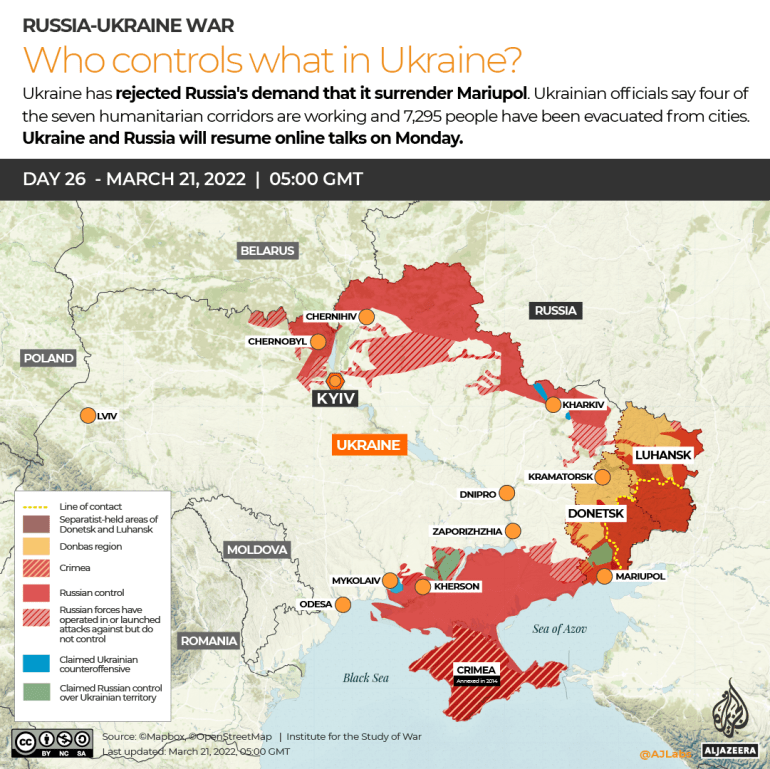Ukraine war: Why is Russia encouraging foreign fighters to join?
Analysts say the Kremlin may have been inspired by Ukraine’s similar step and warn of ominous consequences.

On March 11, Russian President Vladimir Putin threw his support behind a plan to recruit what he characterised as eager foreign volunteer fighters to join his forces in Ukraine and “help the people who live in the Donbas”.
Defence Minister Sergei Shoigu said 16,000 troops were ready to assist Russia in combat, which came as unfavourable news for Ukrainians.
While Putin did not mention the Middle East, observers say Russia is looking to recruit hardened fighters from Syria.
Moscow and Damascus share a close relationship and Syrian President Bashar al-Assad is deeply indebted to his Russian counterpart, who intervened in the civil war in 2014 and aided his survival.
While information on military developments, whether from Russian or Ukrainian sources, is unreliable as an information war ramps up, the threat of mercenaries is significant.
Non-state actors are already fighting in Ukraine, said Wyn Rees, professor of international security at the University of Nottingham.
“Putin is pursuing a two-pronged approach. On the one side, he is entering into negotiations, while on the other, he is increasing the military pressure. It was widely reported that Russian special forces and former military individuals had been inserted into Ukraine to disrupt the defence and target leaders in Ukraine,” he told Al Jazeera.
In addition to employing the regular Russian army in Ukraine, intelligence officials in Kyiv say Moscow is using members of the notoriously private security company the Wagner Group. Fighters from Chechnya, loyal to Russia, are also battling Ukrainian forces.
The deniability is pivotal, as groups such as Wagner violate Russian law, according to Jenny Mathers, senior lecturer in international politics at Aberystwyth University.
“Private military companies are illegal in Russia. The Wagner Group has close links to [Russian military intelligence] and is thought to recruit from former Russian soldiers.
“Very often, Russian private military companies serve as security guards or train other armed forces as well as combatants,” she said.
“Mercenaries generally operate outside of the constraints of conventional warfare and are primarily motivated by financial gains, and the Geneva Convention does not protect them,” Cristian Nitoiu, lecturer in diplomacy and international governance at Loughborough University London, told Al Jazeera.
“It is likely that mercenaries, especially those working under the banner of private security companies such as Blackwater or the Wagner Group, would have better training in urban and guerrilla warfare than the Russian conventional army.”
Then, there are political reasons.
Besides Wagner, there are Chechen fighters aligned with both sides in Ukraine, Mathers noted.
According to Russian statements, pro-Russian groups were now allowed to receive support from foreign volunteers.
And recruitment from Syria ought to be unproblematic, considering the desolate economic situation there after 11 years of war.
“The Russian army has used mercenaries and private security companies in Syria and Libya in the past, so it is likely that similar strategies are and will be employed in Ukraine, too. Putin has also agreed to allow fighters from Syria with urban combat experience to join the rebels in the Donbas region,” Nitoiu noted.
The influx of foreigners to support Ukraine – estimates put the number around 40,000 to 100,000 – might have prompted the Kremlin to deploy similar tactics, Nitoiu said.
“The widespread presence of mercenaries also shows that both parties are preparing for a long, drawn-out military conflict, where urban and guerrilla tactics will play a key role. Ukraine is the loser here, as mercenaries operate with impunity and may engage in wide-scale destruction with little afterthought,” Nitoiu added.

Looking ahead, mercenaries might impact Ukraine’s post-war reality.
